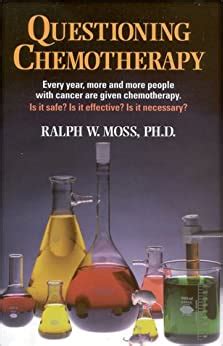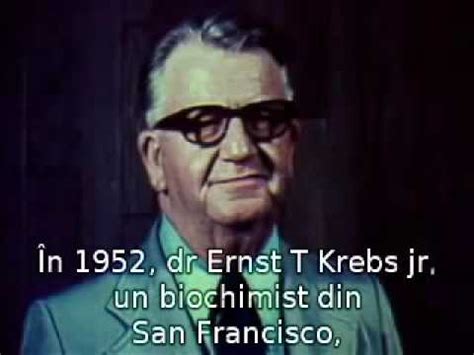A Quote by Ralph W. Moss
The great success stories of chemotherapy were always in relatively obscure types of cancer. Childhood leukemia constitutes less than two percent of all cancers and many of chemotherapy's other successes were in diseases so rare that many clinicians had never even seen a single case
Related Quotes
If cancer specialists were to admit publicly that chemotherapy is of limited usefulness and is often dangerous, the public might demand a radical change in direction-possibly toward unorthodox and nontoxic methods, and toward cancer prevention. ...The use of chemotherapy is even advocated by those members of the establishment who realize how ineffective and dangerous it can be.
Chemotherapy and radiotherapy will make the ancient method of drilling holes in a patient's head to permit the escape of demons look relatively advanced.... Toxic chemotherapy is a hoax. The doctors who use it are guilty of pre-meditated murder, and the use of cobalt and other methods of cancer treatment popular today effectively closes the door on cure.
I think one possibility [in the future] might be chemotherapy. And I'm always hesitant to say that because it makes it sound like I'm against chemotherapy. Right now, chemotherapy is the best cancer treatment therapy we have. But let's say we find some way where we can almost genetically engineer the DNA of our being and fight cancer that way. Then, the idea that we used to pump poison into people to fight off cancer will almost seem like the use of leeches or something.
A study was done which shows the majority of oncologists who refer patients for chemotherapy for lung cancer would not themselves take chemotherapy for lung cancer. And in fact if the chemotherapy involved cis-platen, something like 75% of them said they wouldn't take it. But what do these people do all day long? They're sending people for cis-platen.
In 1975, the respected British medical journal Lancet reported on a study which compared the effect on cancer patients of (1) a single chemotherapy, (2) multiple chemotherapy, and (3) no treatment at all. No treatment 'proved a significantly better policy for patients' survival and for quality of remaining life.'
A study of over 10,000 patients shows clearly that chemo's supposedly strong track record with Hodgkin's disease (lymphoma) is actually a lie. Patients who underwent chemo were 14 times more likely to develop leukemia and 6 times more likely to develop cancers of the bones, joints, and soft tissues than those patients who did not undergo chemotherapy .
I look upon cancer in the same way that I look upon heart disease, arthritis, high blood pressure, or even obesity, for that matter, in that by dramatically strengthening the body's immune system through diet, nutritional supplements, and exercise, the body can rid itself of the cancer, just as it does in other degenerative diseases. Consequently, I wouldn't have chemotherapy and radiation because I'm not interested in therapies that cripple the immune system, and, in my opinion, virtually ensure failure for the majority of cancer patients.
Learning that whole grains, legumes, fruits and vegetables can help prevent many cancers, including cancers of the prostate, breast, mouth, throat, esophagus, lung, colon, kidney, pancreas, thyroid, gallbladder, and probably other cancer types is a powerful lesson that can have a significant impact on children's lives.































